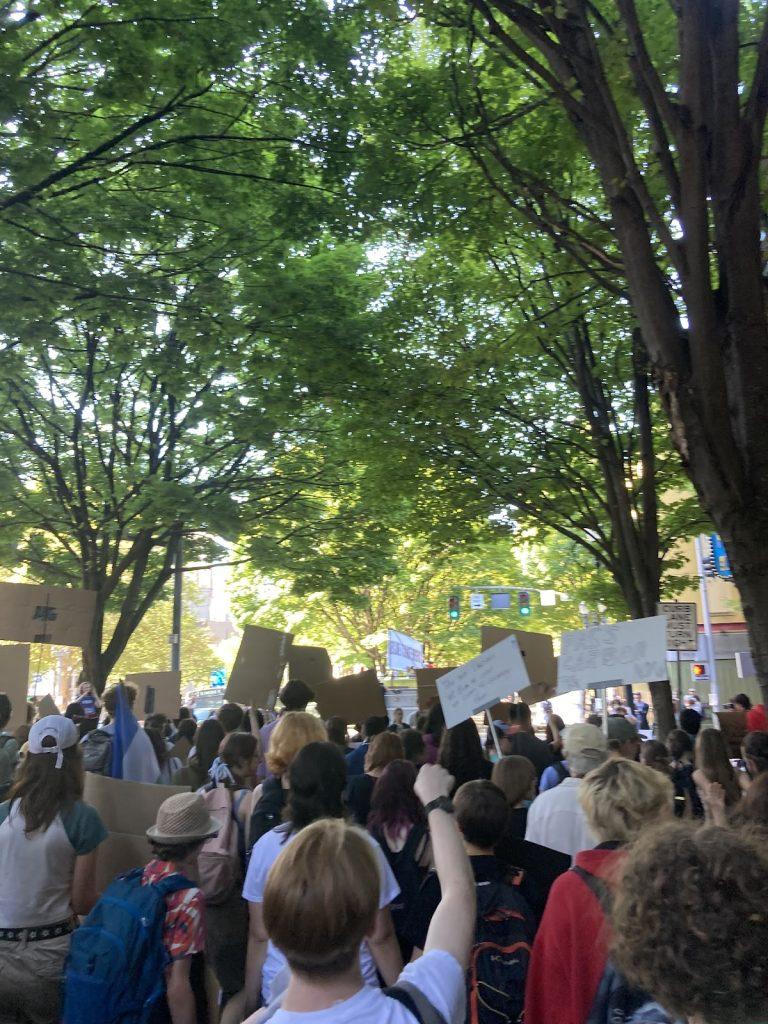
On Sept. 15, 2023, at 11 a.m., middle and high school students from the Portland metro area prepared to protest the negligence of the climate crisis, and publicly address the urgency of the current climate situation. This annual event takes place at the beginning of every school year with Portland’s students flocking the streets of downtown to demand climate action, reform, and justice. Their actions are met with varied opinions and beliefs, even resulting in debates on how effective and necessary youth protests for change are.
Each year this student-led climate strike is hosted by Portland Youth Climate Strike (PYCS). Their intent is to spread awareness about climate change, make climate action a priority in the local area, create new climate positive legislation, and overturn environmentally harmful legislation for the state of Oregon. The current goal is for Oregon Governor Tina Kotek to declare the climate situation a state of emergency. With this, they attempt to deny the permit to Zenith Energy— a new energy alternative that the city of Portland is proposing.
Niomi Markel, a board member of PYCS, defends the need for climate strikes, stating, “It’s a great way for young people to get engaged in the movement and an amazing coalition builder because PYCS works with so many partner organizations.” As Markel expands, “This event is a really powerful way to create an intersectional movement because everybody gets so excited for strikes.”
When asked about the current turnout at the climate strikes, Markel explains that since 2019, PYCS has seen students lose interest in the climate movement. 2019 marked PYCS’s biggest climate strike, with nearly 3,000 people attending. Unfortunately, since the pandemic, PYCS has seen a decrease in youth participation for the walkout. For the people who do attend though, they see the importance.
In an effort to inspire more support PYCS is currently trying to get families and parents involved, making their events more accessible for all ages. For the 2023 strike they have done this by adding more options to protest. Markel explains, “If you don’t want to march with us, you can stay behind and visit with other organizations and talk to PYCS representatives at city hall.”
When asked about the impact the climate strike has, Shawn, a freshman from Oregon Episcopal School, shares, “It’s a really big step that young people can really make an impact, and it can help inspire people in other places to do the same.” Madison, a current junior at Grant High School, adds, “I think the climate is super important, and we really need to advocate for it when we still have time … the gathering of people is super impactful in general and it’s really cool to see everybody coming together …it’s really inspiring to me personally.” Lily Barron from Grant High School reiterates this personal impact, stating, “I feel like the climate strike is really important to me because I get to feel like I have a voice.” Events like these remind us how significant student activism is, and how it can make a difference to youth in the local community.

































